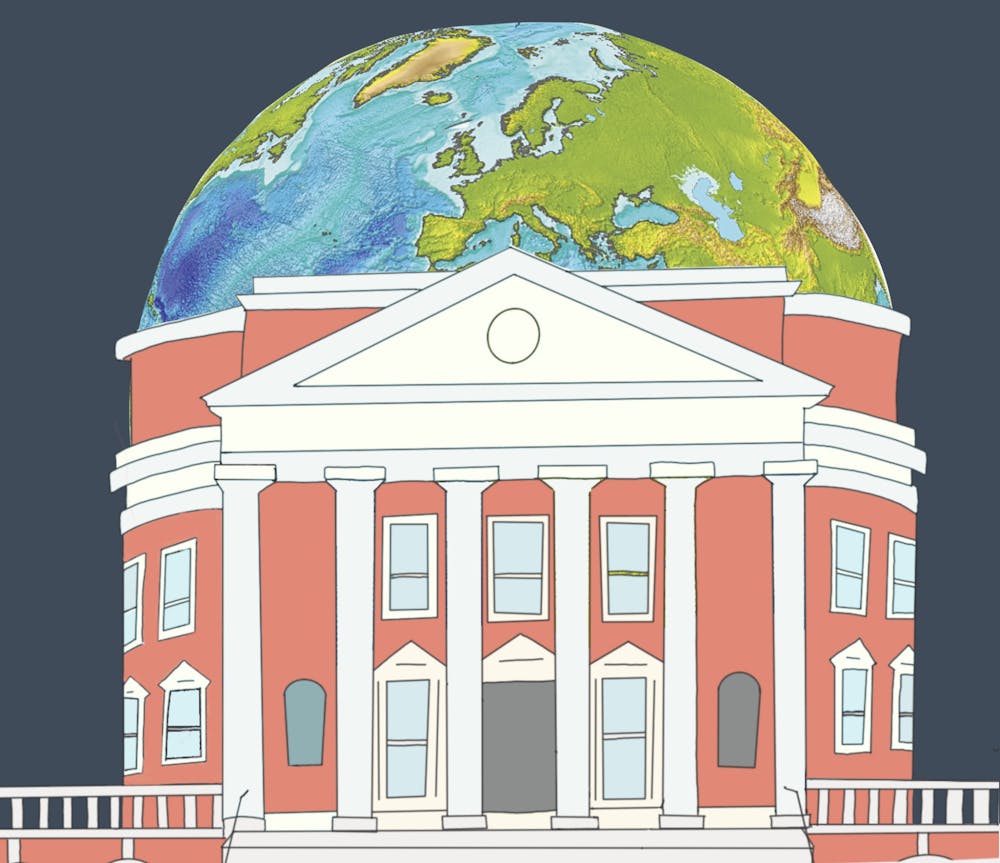As a demographic group, international students constitute about 5 percent of each admitted class at the University, but the variety of their individual contributions to the student body cannot be summed up in a statistic. International students hail from all over the world and face unique challenges, from securing visas to learning on which side of a car the driver sits. Far from homogeneous, their voices highlight how no single set of experiences defines what it means to be an international student on Grounds.
International students must navigate an assortment of legal paperwork to study in the United States. Visa applications and travel signatures make up the bulk of this work, according to Adrienne Kim Bird, assistant director for the International Student and Scholar Program. Acquiring a visa may take longer for some students, as certain students’ home countries require more rigorous application processes than others.
“[For international students], so many things are different,” Kim Bird said. “There's unfortunately a lot of restrictions, and sometimes it can be really tricky.”
The type of visa also determines the extent to which a student may travel. Those with multiple-entry visas may travel between the U.S. and their home country multiple times, but those with single-entry visas cannot, according to Chinmay Nair, Mumbai native and graduate Engineering student.
“Some students have multiple-entry visas … but [others] not do not have this luxury … and never leave the U.S. until they're done with their program,” Nair said.
International students also have different levels of familiarity with U.S. culture. First-year College student Kriti Bhabu said when she first came to the University, she noticed a stark difference between the etiquette of the U.S. and that of her home in New Delhi, such as the way domestic students engage in small talk.
“I think coming here was definitely a huge culture shock, just in the way people interact with each other and the way things work,” Bhabu said. “I was definitely homesick my first few weeks because [the U.S.] was so new.”
Contrastingly, some international students said they had firsthand knowledge of the U.S. before coming to the University. Second-year Commerce student Mia Luu explained how she used to travel annually from Shanghai to the U.S. before coming to Grounds, which allowed her to adjust relatively smoothly to U.S. customs.
“I knew how American culture worked because I had come to America every year,” Luu said. [Now] I feel like I am accustomed pretty well to the culture here.”
To help ease the transition to Grounds, the University offers the Global Peer-to-Peer Mentoring Program and Global Greeters, two ISSP organizations that pair international students with student mentors. International students may also live in the International Residential College, an on-Grounds residence that houses domestic and international students.
Bhabu said these dedicated spaces allow international students to connect with each other, but as someone who does not live in the IRC, she also noted the value in creating relationships outside of structured University spaces.
“I never felt like I didn't have [University] resources to fall back on, [but] personally, I never felt the need to use those resources,” Bhabu said. “I wanted to kind of expand out of the [international student] community.”
For first-year College student Katie Hui, who chose to have a peer mentor, University resources provided a tight-knit community and helped quell her uncertainty in navigating an unfamiliar University environment.
“We have a relatively small international student population,” Hui said. “Everyone's super supportive because there's only so many of you.”
Hui also noted how international students foster support through shared experiences, even if the experiences are not altogether positive. She said bonds often form because international students, connected by circumstance, can truly understand each other’s struggles.
“As international students, regardless of which country or city you're from, you're going through very similar things,” Hui said. “You wish you could celebrate [holidays] with your family or Parent's Weekend with them … As international students, we just have that bond.”
Hui said she hopes the number of international students at the University will increase in years to come, emphasizing how the presence of international students benefits all students on Grounds.
“In the future, I do look forward to seeing U.Va. expand its international community,” Hui said.
Kim Bird emphasized the University’s commitment to supporting the international student community and creating a diverse, inclusive environment where all voices have the opportunity to be heard.
“It's really a two-way street,” Kim Bird said. “International students get so much from the experience of being here, but they also give so much to the University. It's great to have that kind of diversity.”







